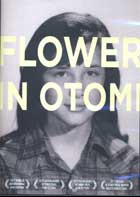
Flower in Otomi (Flor en Otomí) 2012
Distributed by Icarus Films, 32 Court St., 21st Floor, Brooklyn, NY 11201; 800-876-1710
Produced by La Casa de Atrás, FOPROCINE, Filmoteca de la UNAM, IMCINE
Directed by Luisa Riley
DVD, color, 78 min.
Middle School - General Adult
Adolescence, Biography, Human Rights, Social Movement, Mexico, Central America, Latin America, Politics, Women’s Studies, Capitalism, Activism, Sociology, Criminal Justice, Ecoomics, Psychology
Date Entered: 01/06/2016
Reviewed by Malcolm L. Rigsby, Department of Sociology and Human Services, Henderson State University, Arkadelphia, ArkansasHeroes must be remembered lest we lose hope! Flower in Otomi honors the individual and the cause. ~ Malcolm L. Rigsby
Louisa Riley conveys a stark portrayal of the life of Prieto Stock. Her brief life is not unlike that we see of children uprooted from their family culture and transplanted in a new and culturally distinct locale. Prieto’s life was influenced by her childhood in both Mexico City and in New York City. Her parents raised her to question authority in relation to human rights abuse. Prieto, a typical teen, was also attentive to abuses in rural Mexico.
By fall 1973 she had become very interested in the leftist cause in Mexico. The revolution against economic abuse and the need for social justice in Mexico had taken hold of her life. In October of that year she left home and jointed the Fuerzas de Liberacion Nacional (FLN). In February, 1974 she was one of several revolutionaries killed by the Mexican Army at Nepantia.
It is nothing new for second generation and immigrant children to find themselves struggling with who they are and how they fit in to a culture. They often question which culture they truly belong to and whether they can ever fit either culture successfully. In the midst of this struggle is the dilemma of loyalty allegiance. What is the response to observed abuses? Perhaps a bit of Prieto is in so many western youths today that struggle with their identity. This is especially resonating in terms of the immigrant and second generation child whose parents are of very unique cultural histories such as from the near and middle east. Perhaps in viewing and using this film in group discussion or screenings some very important questions might be examined.
Flower in Otomi presents a unique opportunity to examine youth, change, and identity and how these variables may affect broader society. It is an excellent film for all ages and should lead to much critical analysis that will offer meaningful resolves toward bettering society and human rights of all. The film may create active dialogue for groups exploring criminal justice, sociology, capitalism, economics, politics, and psychology.
Flower in Otomi offers excellent film shots and sound. One disturbing element is the droll of the music selection. It is a dismal selection that creates a gloomy rather than a bright mood. Icarus provides a detailed Study Guide for download. The distributor provides a film trailer through YouTube.
Awards
- Best Documentary: 2012 Guanajuato International Film Festival
- Best Film, Social Movements Category: 2012 Festival Contra El Silencio Todas Las Voces
- Audience Award: 2012 Testigo international Human Rights Film Festival